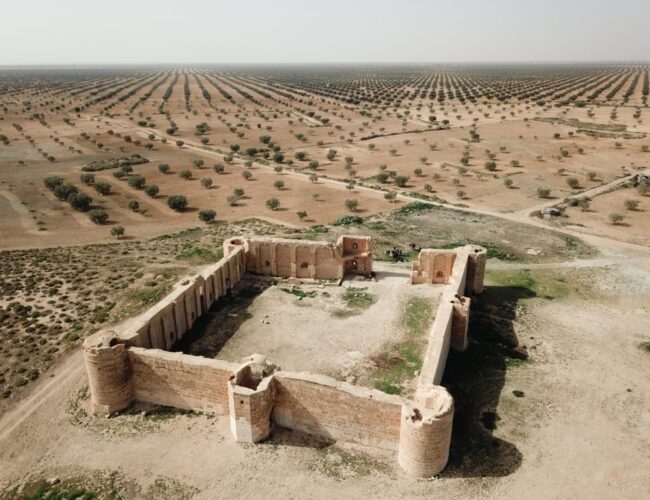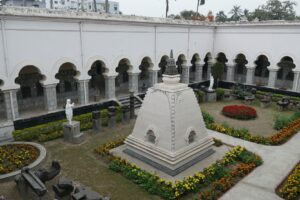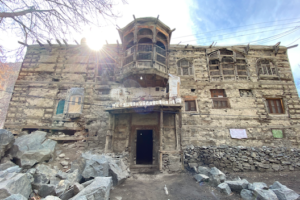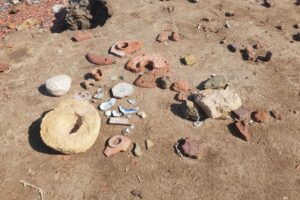This project aims to train 40 staff from Libyan and Tunisian national heritage organisations in documentation techniques, preventative conservation and heritage management.

Archaeological sites, monuments, and historic landscapes
Using our tested methodology, we will continue to train DoA staff on GIS, remote sensing, aerial photographs to identify and to record all archaeological sites/evidence in the landscape and to monitor them through targeted field survey, to identify damage and predict potential dangers. We will extend this work to Tunisia on at-risk sites and regions. At the same time, we will train DoA and INP staff in the use of rapid, replicable and easily-applied techniques for site documentation. This includes the use of recent and inexpensive technologies (drones, geophysics) to map sites and identify risks. This collaborative training will facilitate the preservation of sites at risk from conflict, construction and looting by building-up staff capabilities and cataloguing archaeological sites.
Historic buildings
Using photogrammetry and planning, we will train staff in the detailed but rapid recording of individual monuments, including their architectural decoration such as mosaics. This will create a record of monuments that can be used to assess significance and condition for use in conservation planning and the development of an overall site management plan.
Collections
Our project will train staff in object cataloguing on site and basic preventive conservation in museums focused on good storage practices. Archaeological sites in Libya and Tunisia have large numbers of objects scattered across sites which have never been recorded and are threatened by looting. In additional to traditional documentation practices, we will introduce staff to a new app on tablets, developed by Durham University, to aid object recording, location, photogrammetry, state of preservation to prevent theft and enable condition monitoring. The system’s database can also help international organisations such as Interpol to track stolen items.
Our Funding
Training in Action is a project funded by the British Council-Cultural Protection fund;
https://www.britishcouncil.org/arts/culture-development/cultural-protection-fund/projects/training-in-action
The Cultural Protection Fund was launched in June 2016 by the British Council in partnership with Department for Digital, Culture, Media and Sport. The £30m fund is set up to protect cultural heritage overseas at risk due to conflict.
This project will train 40 staff from respective Libyan and Tunisian national heritage organisations in documentation techniques, preventative conservation and heritage. It also intends to serve as a replicable model for Libyan and Tunisian heritage professionals to train new staff, creating a sustainable cultural protection model in turn.
The project will carry out a three-week training programme to train Libyan and Tunisian professionals in:
– GIS and survey techniques (use of apps, 3D modelling and geophysics)
– site, monument and object recording
– preventative conservation and heritage management on site and in museums
Further training for 16 of the most promising trainees will be offered together with intensive English language instruction.
Project Partners:
• The principle investigator of this project is Dr Anna Leone from Durham University. The Co-investigators are from two further UK institutions; Dr Corisande Fendwick, UCL and Dr William Wootton, King’s College London.
• The project partners with the Department of Antiquities of Libya and the Institut National du Partimone de Tunisie, to build on an existing relationship with both national agencies, with whom the UK university partners have historically worked closely.


